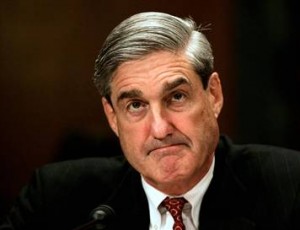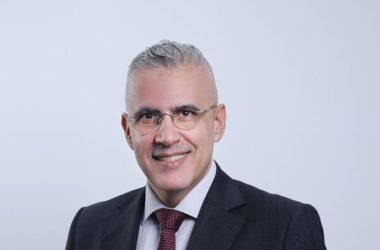T he U.S. Federal Bureau of Investigation anticipates cyber threats to overtake terrorism as the number one threat to the country, says Robert Mueller, director of the FBI.
he U.S. Federal Bureau of Investigation anticipates cyber threats to overtake terrorism as the number one threat to the country, says Robert Mueller, director of the FBI.
Mueller was a keynote speaker today at the RSA Conference 2012 in San Francisco and said the FBI is taking cyber warfare very seriously.
“Terrorism does remain the FBI’s top priority, but in the not-too-distant future we anticipate that the cyber threat will pose the number one threat to our country,” Mueller said.
“We need to take lessons learned from fighting terrorism and apply them to cyber crime. We are ensuring that all of our special agents have the fundamental skills to operate in this cyber environment,” he added.
Mueller spoke of the increasing influence of technology in crime and crime prevention.
“Technology has become something used as a means of attack and an investigative tool. It also illustrates the power of innovative thinking and the very tools we need to stop those who have hijacked cyber space. Technology is moving so rapidly that from a security perspective it is difficult to keep up,” he said.
He added that traditional crimes, particularly terrorism, have built up a huge relevance on the internet.
“Traditional crimes ranging from mortgage and health fraud to child exploitation have migrated online. Terrorists use the internet as a recruiting tool, money maker, training ground and virtual talent square all in one. At the same time we confront hacktivists, organised criminal syndicates and mercenaries willing to hack at the right price,” he said.
“As well, we are witnessing firsthand what happens when countries launch cyber attacks against other nations as a means of exerting power and control. It is imperative that we work together to protect our intellectual property, infrastructure and economy,” he added.
Terrorists have become increasingly cyber savvy and are not concerned with hiding away, Mueller said.
“Much like every other multinational organisation, they are using the internet to grow their business and connect with like-minded individuals. They’re not hiding in the shadows of cyber space. Al Qaeda has produced an English language online magazine. They’re not only sharing ideas, but soliciting information and inviting recruits to join Al Qaeda,” he said.
Whilst a full terrorist-driven cyber attack is yet to happen, Mueller said this must be prepared for nonetheless.
“Extremists are not only making use of the internet for propaganda and recruitment, but they’re also using cyber space to conduct operations. Today terrorists have not used the internet to launch a full scale cyber attack but we cannot underestimate their intent. In one hacker recruiting video, a terrorist proclaimed that cyber warfare will be the warfare of the future. Terrorist use of the internet is not our only national security concern. State sponsored computer hacking and economic espionage pose significant challenges,” he said.
“Just as traditional crime has migrated online, so too has espionage. Enemies seek our intellectual property and trade secrets for military and competitive advantage. State sponsored hackers are patient and calculating. They have the time, money and resources to burrow with and wait. You may discover one breach to find that real damage has been done at a much higher level,” he added.
Organised crime in cyber space offers a higher profit and lower probability of being identified and prosecuted, Mueller said.
“Unlike traditional crime families, these hackers may never meet, but they do possess specialised skill in high demand. They move in quickly, make their money and disappear, and there is no company that is immune. We also see trusted insiders who may be lured into selling secrets for monetary gain,” he added.
Mueller sent out an urgent call to international governments to come together in the fight against cyber crime.
“The end results of these developments are that we are losing data, money, ideas and innovation. As citizens we are increasingly vulnerable to losing our information and together we must find a way to stop the bleeding. We cannot confront cyber criminals on our own,” he said.
“Borders and boundaries pose no obstacles for hackers, but they continue to pose obstacles for global law enforcement, with conflicting laws, different priorities and diverse criminal justice systems. With each passing day the need for a collective approach for true collaboration and timely information sharing becomes more pressing,” he concluded.
Sub editor, Ben Rossi is reporting live from the RSA Security Conference, 2012 in San Francisco. For live tweets from the event, follow @ComputerNewsME and #RSAC.





